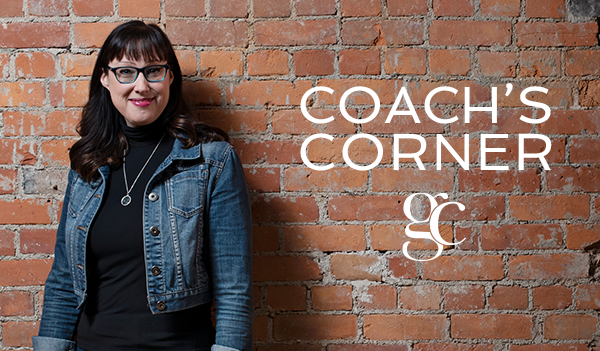
Hi Michelle,
How important are 1:1 coaching meetings for personal and professional growth?
How important is individual attention for a person to be able to learn and grow? Of course, this is sort of like asking a baker if bread is worth baking. I’m going to say coaching is pretty important, both when we’re kids and when we’re adults. Here’s why: none of us can see ourselves as others do. We often look right past our beautiful, natural gifts. We also might gloss over some weaker points we’d benefit from addressing sooner rather than later.
We can choose to open ourselves up to others sharing their observations and opinions about us. Sometimes that’s in a more formal coaching relationship, and other times it’s family, friends, or co-workers who shine a light on a path forward.
One-on-one coaching (or executive coaching) is tricky territory. Some folks who want to share advice or questions for us to ponder don’t have our best interests at heart. They might care more about themselves and what they get from the interaction than what we receive from the communication. Some people would have us believe they’re able to guide us fairly and capably, but they’re not qualified to do so or might be blind to their own limitations. Don’t be too quick to believe praise OR criticism unless you’ve thought through the coach’s skill and motivations.
Choose someone to trust and who you believe is
- ethical,
- aware of their own strengths and limitations,
- experienced in guiding others through the challenges facing you, and
- courageous enough to shoot straight, but never callous or condescending.
At GC, we work with many adults who didn’t have a role model in their youth, and many who did. It is possible to nurture one’s own learning at any age, and possible to find mentors if one is willing to do a few hard things, such as
- discover information about one’s strengths and how, when overused, they become weaknesses,
- welcome both objective and subjective data about oneself (objective data might be personality or performance assessment, subjective data could mean asking others how they experience you),
- place trust in a competent guide for the discovery process.
Here are a few sample goals that people in jobs ranging from nursing home administrator to mechanical engineer are working on. For a client who’s finding their voice – participate in every meeting you attend for one month; for one who finds it hard to focus – document and prioritize a task list, then share it with your boss to become more aligned; for one who feels overwhelmed – create a self-care menu and use one entry daily; for one who manages a large team – complete the Coaching Map at https://bit.ly/GCCoachingMap to make giving feedback easier. Some receive recipes to try for more resonant praise or more skillful delegation.
We all have different growth needs and it’s never too late to make positive change. If you want inspiration and ideas for personal and professional development, we encourage you to sign up for our quarterly newsletter at www.gladieuxconsulting.com/BREAKDOWN.
👍🏼Like it? SHARE IT! Follow this link for a free, printable article.